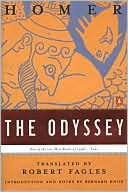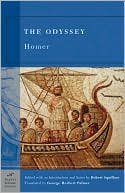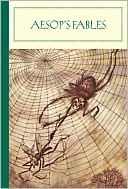The Consolation of Philosophy
‘Why else does slippery Fortune change So much, and punishment more fit For crime oppress the innocent?’\ Written in prison before his brutal execution in AD 524, Boethius’s The Consolation of Philosophy is a conversation between the ailing prisoner and his ‘nurse’ Philosophy, whose instruction restores him to health and brings him to enlightenment. Boethius was an eminent public figure who had risen to great political heights in the court of King Theodoric when he was implicated in...
Search in google:
In this highly praised new translation of Boethius’s The Consolation of Philosophy, David R. Slavitt presents a graceful, accessible, and modern version for both longtime admirers of one of the great masterpieces of philosophical literature and those encountering it for the first time. Slavitt preserves the distinction between the alternating verse and prose sections in the Latin original, allowing us to appreciate the Menippian parallels between the discourses of literary and logical inquiry. His prose translations are lively and colloquial, conveying the argumentative, occasionally bantering tone of the original, while his verse translations restore the beauty and power of Boethius’s poetry. The result is a major contribution to the art of translation. Those less familiar with Consolation may remember it was written under a death sentence. Boethius (c. 480–524), an Imperial official under Theodoric, Ostrogoth ruler of Rome, found himself, in a time of political paranoia, denounced, arrested, and then executed two years later without a trial. Composed while its author was imprisoned, cut off from family and friends, it remains one of Western literature’s most eloquent meditations on the transitory nature of earthly belongings, and the superiority of things of the mind. In an artful combination of verse and prose, Slavitt captures the energy and passion of the original. And in an introduction intended for the general reader, Seth Lerer places Boethius’s life and achievement in context.Steve Donoghue - openlettersmonthly.comIt's a remarkable book (though a short one), and its latest edition, rendered into fluid, compellingly immediate English by veteran translator David R. Slavitt, is very markedly the best one it's ever had...Slavitt presents the reader with Boethius brought to vibrant, vigorous life, to a degree that makes all previous English versions seem pedantic and irrelevant. Harvard University Press has crafted a physically beautiful volume, sturdy and small enough to fit in your pocket--an extremely fitting format for a book that's meant to be a comfort against life's ills. Reading this edition, even readers who've never encountered Boethius before will see at once why his book has meant so much to so many people for the last 1,500 years.
PrefaceviiiIntroductionxiIIntroductoryxiIIBoethius' Life and WritingsxiiiIIIThe Consolation of PhilosophyxxiiIVThe Christianity of BoethiusxxxiiVThe TextxxxvBook I3Book II22Book III47Book IV85Book V116Bibliography139Glossary143
\ Library JournalSlavitt, a poet and translator of over 80 works of fiction, poetry, and drama, presents a new translation of this philosophical classic directed at general readers. Written under the threat of Boethius's impending execution, the work comes on the cusp between the classical and medieval worlds. In alternating prose and verse, Boethius spins a dialog concerning the harsh vicissitudes of fortune and the lasting happiness provided by the life of the mind. Slavitt's prose translation is accessible and makes frequent use of colloquialisms. His poetic translations-too often paraphrased in earlier editions-are not weighed down with attempted fidelities to ancient meter and use contemporary forms to evoke the gravity and grace of the original. While the book does include a brief biographical and textual introduction by Seth Lerer (English & comparative literature, Stanford Univ.), its lack of textual apparatus makes this edition less than ideal for students. It does succeed, however, as a springboard for personal reflection and a source of literate pleasure. Recommended for large public and academic libraries.-Steven Chabot, Univ. of Toronto\ \ \








